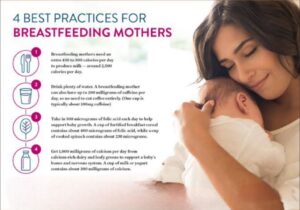How to Care for a Newborn Baby: Simple Steps for a Happy and Healthy Start
Welcoming a newborn baby into your life is a momentous occasion filled with excitement, joy, and perhaps a bit of anxiety. As a new parent, you’re probably wondering how to best care for your little one. It’s understandable — after all, newborn babies are tiny, fragile, and entirely dependent on you for everything. But rest assured, with the right guidance and some patience, you’ll be equipped to provide the best care for your newborn, ensuring they have a healthy and happy start in life.
In this blog post, we will walk you through simple yet essential steps to help you care for your newborn baby in the first few weeks and months. These tips cover everything from feeding and sleeping to safety and bonding.

1. Feeding Your Newborn: The Basics of Nourishment
One of the most important aspects of caring for a newborn is ensuring they are fed properly. Babies typically need to eat every 2-3 hours in the first few weeks of life, whether you are breastfeeding or formula feeding. Let’s look at both options in detail:
Breastfeeding
Breastfeeding is recommended by health organizations worldwide because of the numerous benefits it offers both mother and baby. Breast milk is packed with essential nutrients and antibodies that help protect your baby from illnesses, boost brain development, and promote a healthy immune system.
Tips for Successful Breastfeeding:
– Start early:
It’s ideal to start breastfeeding as soon as possible after birth, usually within the first hour.
– Positioning matters:
Make sure you are comfortable, and your baby’s latch is correct to prevent soreness and ensure effective feeding.
– Feed on demand:
Newborns may nurse frequently, often every 1.5-3 hours. Trust your baby’s hunger cues and don’t worry about a strict schedule.
– Stay hydrated:
Drink plenty of fluids to maintain your milk supply.
– Seek support:
If you’re facing difficulties, consider consulting a lactation consultant for expert advice.

Formula Feeding
If you are choosing formula feeding or supplementing with formula, it’s important to choose a high-quality, age-appropriate formula. Consult your pediatrician for recommendations based on your baby’s health needs.
Tips for Formula Feeding:
– Prepare the formula properly: Always follow the instructions on the formula packaging for proper mixing and sterilization.
– Feed on demand: Like breastfeeding, formula-fed babies need to be fed every 2-3 hours, especially in the first few weeks.
– Warm the bottle: Formula should be served at room temperature or slightly warmed. Never microwave it, as it can create hot spots.
– Burp your baby: After each feeding, burp your baby to help release any air swallowed during feeding and prevent discomfort.
2. Sleeping: Ensuring Safe and Restful Sleep
Newborns sleep a lot — up to 16-18 hours a day! However, their sleep patterns are irregular, and they often wake up every few hours to eat. Establishing good sleep habits early on can help you and your baby get some much-needed rest.
Safe Sleep Guidelines
Creating a safe sleep environment is one of the most important things you can do to ensure your baby’s well-being.
– Place your baby on their back: Always lay your baby down on their back to sleep, even for naps. This reduces the risk of sudden infant death syndrome (SIDS).
– Use a firm mattress: Place your baby in a crib with a firm mattress and avoid using soft bedding, pillows, or blankets. These can increase the risk of suffocation.
– Keep the sleep area clutter-free: Make sure there’s nothing in the crib that could pose a danger to your baby.
– Consider co-sleeping with caution: If you’re co-sleeping, ensure the baby is on a separate, firm surface like a co-sleeper attached to your bed. Never sleep with your baby on a couch or armchair.

Establishing Sleep Patterns
Although newborns have unpredictable sleep schedules, creating a calm and consistent bedtime routine can help. Try the following tips to encourage healthy sleep habits:
– Set up a soothing environment: A quiet room with soft lighting and a calming noise, like white noise or gentle lullabies, can help your baby drift off to sleep.
– Start a bedtime routine: Even in the early weeks, you can begin a calming pre-sleep routine, such as gentle rocking, a warm bath, or soft music.
– Let your baby sleep when they need it: Don’t worry about getting your baby on a rigid sleep schedule just yet. Focus on helping them get the rest they need.
3. Diapering: Keeping Your Baby Clean and Comfortable
Newborn babies require frequent diaper changes — usually about 8-12 times a day. Proper diaper care helps keep your baby comfortable and prevents rashes.
Choosing the Right Diapers
You can choose between disposable or cloth diapers, depending on your preference. Both options require you to stay vigilant in ensuring your baby is clean and dry.
Diaper Changing Tips:
– Wipe from front to back: This is especially important for girls to avoid urinary tract infections.
– Change diapers frequently: Even if the diaper doesn’t look full, it’s important to change it regularly to prevent irritation and rashes.
– Use diaper rash cream: If your baby develops a diaper rash, apply a thick layer of diaper rash cream or ointment after each diaper change to create a protective barrier.
– Keep a diaper changing station: Having a designated spot with all the essentials (diapers, wipes, ointments) can make diaper changes easier and more efficient.

4. Bonding with Your Baby: Emotional and Physical Connection
Bonding with your newborn is essential for their emotional and psychological development. This connection helps your baby feel secure and loved.
Ways to Bond:
– Skin-to-skin contact: Holding your baby close, with their skin touching yours, can calm them and promote healthy brain development.
– Talk to your baby: Even though your newborn can’t respond with words, speaking to them in a gentle, soothing voice helps them begin to recognize your voice and feel comforted.
– Eye contact and smiles: Gently looking into your baby’s eyes and smiling at them will encourage early social interactions and help them feel loved.


Baby Massage
Gentle baby massage is another great way to bond. It can help your baby relax, improve circulation, and aid digestion. Use soft, calming strokes and make sure the room is warm and quiet to enhance the experience.
5. Health and Safety: Keeping Your Baby Safe
Taking care of your baby’s health and safety is a top priority.
Vaccinations and Check-ups
Ensure that your baby gets their recommended vaccinations and well-child check-ups. These early visits help monitor their growth, development, and overall health.
Babyproofing Your Home
As your baby grows and becomes more mobile, babyproofing your home becomes essential. Here are a few simple steps to follow:
– Keep hazardous items like cleaning supplies and sharp objects out of reach.
– Install safety gates at the top and bottom of stairs.
– Use outlet covers to prevent your baby from sticking their fingers into electrical outlets.
– Secure heavy furniture to the wall to prevent tipping.
Monitor Your Baby’s Health
Regularly monitor your baby’s weight gain, feeding habits, and general well-being. If your baby is showing signs of distress, such as excessive crying, fever, or difficulty feeding, don’t hesitate to contact your pediatrician.
6. Taking Care of Yourself as a Parent
Lastly, while you focus on caring for your newborn, it’s equally important to care for yourself. Being a new parent can be physically and emotionally exhausting, and self-care is crucial to your well-being.
– Get rest when you can: Take naps when your baby sleeps, and don’t be afraid to ask for help from friends or family to get some much-needed rest.
– Eat well and stay hydrated: A healthy, balanced diet will help you maintain your energy levels.
– Seek support: Don’t be afraid to lean on your partner, friends, or family for help. Parenting can be challenging, and asking for support is not a sign of weakness, but a necessary step in caring for your baby and yourself.

Conclusion
Caring for a newborn baby is a wonderful and rewarding experience, but it also comes with its challenges. By focusing on the basics — proper feeding, safe sleep practices, bonding, diapering, and ensuring their health and safety — you’re giving your baby the best start in life. Remember to take it one step at a time, trust your instincts, and lean on the support of others. Your baby’s first few months will pass quickly, and by following these simple steps, you’ll be well on your way to building a strong foundation for their future happiness and health.